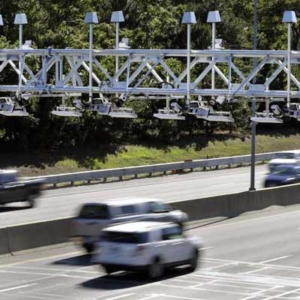New look at what tolls would mean for Connecticut drivers
Excerpt from CT Post. “Our plan, we think is the best value for Connecticut drivers,” Lemar said, detailing several months of negotiations with the state DOT, as well as federal highway authorities for months, with focus on strategic investments. “We feel pretty proud of the product that we have. If you are commuting every day…

Excerpt from CT Post.
“Our plan, we think is the best value for Connecticut drivers,” Lemar said, detailing several months of negotiations with the state DOT, as well as federal highway authorities for months, with focus on strategic investments. “We feel pretty proud of the product that we have. If you are commuting every day as a Connecticut driver, going to and from work, we think you should be paying a little bit less.”
“The other states are soaking out-of-state drivers,” said House Majority Leader Matt Ritter. “That’s exactly what they do. The cost sometimes is $20 to go over a bridge. Every other state is doing that except Connecticut.” He said that Connecticut’s bill is likely to be the most-comprehensive package on tolling in the nation as it aims at generating $700 million a year in revenue.
“What all other states have done in the last 10 years when they passed a tolling program legislatively, they just create a framework where DOT negotiates with federal highway authorities,” Lemar said. “We’re saying is that that’s not good enough. In Connecticut we want to know the details up front.”
Driver choices, with higher prices during morning and afternoon commuter hours, would potentially discourage some drivers, including interstate truckers. “Frankly this drives consumer choices,” Lemar said. “Like a lot of the trucks that we find on our roadways at 8:30 in the morning traveling along congested highways should be making a better and smarter business choice about when they’re on the roads.”
Earlier on Wednesday, Joe Sculley, president of the Motor Transport Association of Connecticut, said because the plan would not affect highway congestion, he believes that federal authorities are unlikely to okay it.
“There is nothing in this working draft to indicate that it will gain approval from the Federal Highway Administration,” he said, stressing that the plan seems to be driven by raising money, not reducing traffic congestion as required by the FHWA.
See complete article from CT Post online.
